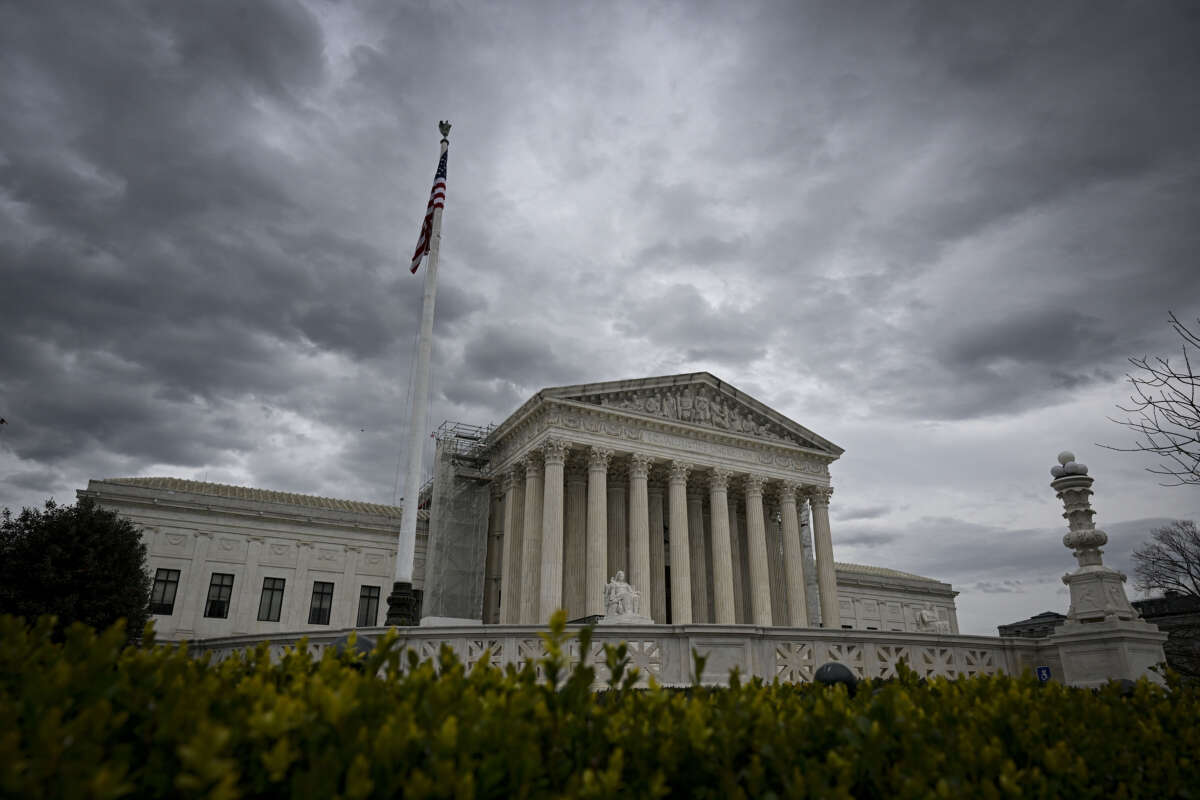Dozens of organizations have come together in support of legislation that would place limits on how long a Supreme Court justice can serve, restricting their tenure to 18 years.
The legislation would also guarantee a sitting president two appointments to the Court for every four-year term they serve, giving them the chance to nominate a justice to the bench in the first and third year of said term — but limiting them from appointing more than that.
Fifty-six advocacy organizations are endorsing the bill, titled the Supreme Court Tenure Establishment and Retirement Modernization Act, which was first submitted by Rep. Hank Johnson (D-Georgia) in 2022. Since Johnson re-submitted his bill to Congress last fall, it has been racking up co-sponsors, including Reps. Jamie Raskin (D-Maryland), Pramila Jayapal (D-Michigan), Jerry Nadler (D-New York), and most recently Katie Porter (D-California), who signed on as a cosponsor on March 29.
Among the notable organizations that have endorsed the legislation are Citizens for Responsibility and Ethics in Washington, the Brennan Center for Justice, DemCast USA, MoveOn, Indivisible, Voices for Progress, Working Families Party, and Stand Up America.
In addition to the 18-year limit imposed on justices’ tenures and the limit on how many justices a president can appoint to the High Court, the bill has provisions that would reduce the chances of abuse from other branches of government, including from Congress and specifically the Senate, which constitutionally provides “advice and consent” to the president to approve justices. That chamber, for example, could not refuse to approve or disapprove a nominee indefinitely, as the GOP-controlled Senate did against former President Barack Obama in 2016, effectively blocking his nominee, Merrick Garland, at that time.
Instead, under the proposed legislation, the Senate would have 90 days to decide on a proposed nominee. If that initial nominee is rejected, subsequent nominees from a president would have to be decided on within 120 days.
The bill would also allow the Court to fill unexpected vacancies in a novel way — if the number of justices ever dips below nine (due to the continued refusal to sit a nominee, for example, or in the event of a justice’s death or early retirement), the chief justice of the Court would choose, at random, a retired justice to serve in the position until the vacancy is filled.
“The United States remains the only modern constitutional democracy in the world without term or age limits [for its highest court] and virtually every state’s highest court has likewise rejected life tenure,” a press release from Stand Up America read.
Christina Harvey, that organization’s executive director, said that the mechanism proposed by Johnson would reduce the politicization seen on the Court in recent years, stating:
Extremists on the Supreme Court have undermined our democracy and fundamental freedoms by gutting voting rights, opening the floodgates to unlimited corporate money in our elections, and reversing 50 years of precedent by overturning Roe v. Wade.
“No one deserves power for life,” Harvey added. “That’s why 49 out of 50 states have either term limits, elections, or age limits for their highest courts. To protect our democracy and our fundamental freedoms, Congress should enact term limits for the U.S. Supreme Court.”
In reintroducing his bill last fall, Johnson also stated that the TERM Act was necessary because “lifetime tenure on the United States Supreme Court leads to a Court that is insulated from, and unaccountable to, the American people, which is bad for democracy.”
Polling on the issue of tenure limits for Supreme Court justices has consistently shown that American voters would be highly supportive of such a measure. An Associated Press/NORC poll from July of last year, for example, found that 67 percent of Americans would support a proposal that would carve out a specific number of years that a justice could serve.
Similarly, a University of Massachusetts Amherst poll released a month prior to the AP/NORC survey found that around two-thirds of Americans (65 percent) supported tenure limits.
“Americans are angry with a Supreme Court that seems out of touch and ideologically extreme,” said Jesse Rhodes, professor of political science at the university and co-director of the poll. “This frustration is showing in huge public support for major reforms, including ethics requirements for justices as well as term limits.”
